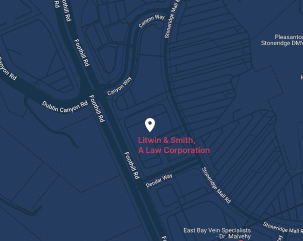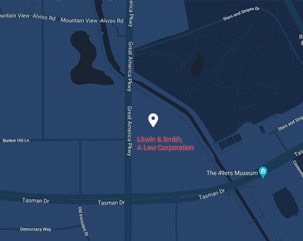A Department Of Labor Administrative Law Judge found that attorney’s fees cannot be deducted from an employee’s required wage but that it was acceptable for the deduction to come from the final paycheck for unused vacation time. (Administrator v. Woodmen of the World Life Insurance Society, 10/26/16)
OALJ on H-1B Repayment Agreement: Matter of Woodmen of the World Life Insurance Society
Matter of Woodmen of the World Life Insurance Society, Oct. 26, 2016– “The rub is whether the actual wage is what Woodmen Life paid Garcia ($92,880.77) or whether it should be based on what it paid five other non H-1B System Test Engineers who had similar qualification and experience as Garcia ($79,094, on average). Complicating the analysis is the fact that some (or perhaps even all) of the $4,575 deducted pursuant to the Employee Repayment Agreement came from Garcia’s unused vacation time. The parties do not agree on where the $4,575 deduction came from; however, given that his gross pay for the nine days he worked totaled $3,214.78, that sum is insufficient to cover the $4,575 deduction. JX-10. His unused gross vacation pay was $9,644.33, which clearly could have covered the entire deduction. JX-10 & 12. For purposes of my analysis, I find that the entire deduction was taken from Garcia’s unused vacation pay and address the Administrator’s arguments under section 655.731(c)(3) and (c)(9). Because that is dispositive, I need not enter the thicket of whether Garcia was paid the required wage because there was no deduction from his actual wage of $92,880.77. … I find that Woodmen Life did not violate § 655.731(a)(3) because Garcia’s benefits were offered on the same basis and in accordance with the same criteria as offered U.S. workers. To give Garcia full payment for his unused vacation time and not allow a deduction pursuant to the terms of his repayment agreement places Garcia in a better position than Woodmen’s other U.S. employees with repayment agreements and unused vacation time. … Because $4,575 deduction for H-1B attorney fees came from the benefits side of the equation and not Garcia’s required wage, this section is inapplicable to the case at bench. The Administrator’s reading of the regulation as prohibiting any deduction of H-1B attorney fees and costs from an employees pay or benefits is far too broad and not supported by the plain language of the regulation. … Woodmen Life’s Cross Motion for Summary Decision is GRANTED and the Administrator’s Motion for Summary Decision is DENIED. Woodmen Life paid Garcia his required wage and no back wage assessment is required.”
Prior to this case a previous DOL ALJ decision stated an employee early leaving.
LIQUIDATED DAMAGES:
Liquidated Damages due to early termination of employment: In order to recruit, interview, hire, and train a new employee, Company incurs specific expenses, exclusive of the business expenses related to (i) H-1B sponsorship including USCIS Fees and Attorney Fees. Furthermore, a voluntary and premature termination of employment by you results in a specific loss of revenues to Company due to disruption of on-going projects and the consequential inability to meet deadlines and deliverables. Hence, should you voluntarily terminate employment with Company prior to twelve (12) months of billable period from your date of employment, you shall be liable to pay Company , specific liquidated damages(*), as detailed in this agreement. These liquidated damages are not meant to: (i) penalize you, or (ii) recover H-1B related USCIS fees, or (iii) recover H-1B Attorney Fees from you consistent with 20 C.F.R. 655.731 © 12, or (iv) dissuade you from terminating this employment, which remains, employment at will. (*)The liquidated damages are $8325 (Eight thousand, three hundred twenty five U.S. Dollars)
What remedy does an employer have when an H-1B employee terminates his or her employment before the agreed upon date for the conclusion of employment? Deciding in favor of the employer, a U.S. Department of Labor Administrative Law Judge (ALJ), in In The Matter of Administrator, Wage and Hour Div. v. Greater Missouri Med. Pro-Care Providers Inc., concluded that an appropriate provision in the employment agreement would entitle the employer to liquidated damages from the worker. No. 2008-LCA-26 (Oct. 18, 2011).
The Agreement
The employment agreement contained the following provision, which required the H-1B employee to pay damages to Greater Missouri Medical in the event of early termination:
Additionally, Employee agrees to pay liquidated damages to the Company in the event of early termination of this Agreement by the Employee, through no fault of Employer, according to the following schedule: $10,000.00 if Employee terminates this Agreement before the end of 6 months from the first day of employment; $7,000.00 if Employee terminates this Agreement after the first six months of employment but prior to the end of the 12 months from the first day of employment; $4,000.00 if Employee terminates this Agreement after the end of 12 months but prior to the end of one and one-half years from the first day of employment;, and $3,000.00 if Employee terminates this Agreement after one and one-half years but prior to the end of two years from the first day of employment.
Greater Missouri Medical’s president explained the liquidated damages provision as follows:
1. The set amounts were based on three considerations:
A. Damage to the employer and its need to protect its overall investment and interest as a going concern, and investment of the company in securing the services of the employee;
B. Direct and indirect costs incurred in bringing the H-1B employees to the U.S. and the amount of profits expected to be derived from each worker ($1,000 per worker per month); and
C. The “Market Perspective” value of such employees to other employers who may seek to hire such workers away from the employer and pay the damages because of the market demand for such workers.
In later agreements, the employer increased the levels of the early termination damages provision because of increasing costs in securing H-1B workers.
Available Damages
Under the law, an employer may not require an H-1B employee to pay a penalty for ceasing employment with the employer prior to a date agreed upon between the employer and employee. 20 CFR 655.731(c)(10). However, the employer may receive bona fide liquidated damages from the H-1B nonimmigrant worker who ends employment with the employer early.
The distinction between allowable liquidated damages and non-allowable penalty is to be made on the basis of the applicable state law. These laws uniformly hold that liquidated damages are amounts fixed or stipulated by the parties at the inception of the contract. The amounts should be reasonable estimates or approximations of the anticipated or actual damages caused to the injured party by the breaching party. In addition, the level of damages in the agreement should takes into account whether there was a total or partial breach, as evidenced by a sliding scale in the amount claimed based on length of employment prior to termination.
Judge Awards Liquidated Damages
The Administrative Law Judge, taking into consideration the testimony at the hearing, found that the early termination damages provision was not a penalty for early termination, but a bona fide liquidated damages provision. Therefore, the employer could recover liquidated damages.

